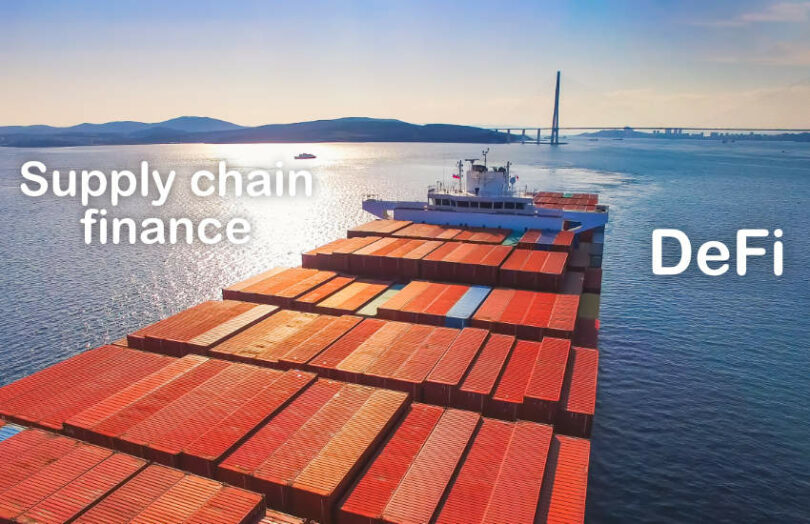Today newly launched startup OpenTrade unveiled a $1.5m funding round led by Sino Global and including Circle Ventures and others. OpenTrade will launch a DeFi protocol for structured finance products in the second half of the year. This will include liquidity pools of U.S. Treasuries, investment grade commercial paper and trade finance.
Co-founder and CEO Dave Sutter spent almost six years at Marco Polo, the blockchain trade finance network that shuttered earlier this year. Marco Polo used bank money for financing, whereas OpenTrade will target non-bank liquidity providers.
It plans to use Circle’s USDC stablecoin for funding and will integrate with procure-to-pay systems, supply chain finance systems and ERP solutions to provide liquidity for corporates. In some ways, it’s not dissimilar to Marco Polo which was heavily integrated with ERP. The big difference is the corporates can be in the driving seat versus relatively slow-moving banks.
Both the Chief Commercial Officer Jeff Handler and CTO Tom Niermann had stints at Marco Polo, with Handler most recently at Centre, the governance organization involved in USDC and Niermann at Meta. The team is rounded out by Michael Harte, former COO/CIO at Barclays and Santander and Michele Biscelgia, previously a Partner at AGFE.
“OpenTrade is a team that has identified real use cases where the utility value of USDC and DeFi can drive broader usage of these technologies across global supply chains and finance providers,: said Wyatt Lonergan, Head of Circle Ventures. “We are excited to invest in OpenTrade as they help unlock the utility value of USDC in structured and supply chain finance.”
Michele Biscelgia has set up another venture Five Sigma Finance which was spun out of AGFE to manage the ‘off chain’ operations of OpenTrade. Its shareholders include Steve White and AGFE with a minority position. It claims to have $700 million in assets under management.
The other investors in the funding round are Kronos Research, Kyber Ventures, Polygon Ventures, and Outlier Ventures.
The blockchain competition
Meanwhile, Franklin Templeton recently revealed its tokenized government money market fund had surpassed $270 million in assets under management. It started on the Stellar blockchain and is now also available on Polygon. Another startup targeting Treasury and money market fund tokenization is Ondo Finance.
Regarding trade finance, the main public blockchain player has been Centrifuge which was started by the co-founders of the Taulia supply chain finance platform. MakerDAO, the operator of the DAI stablecoin, has been investing some of its stablecoin reserves in real world assets, with Centrifuge a major beneficiary. In late 2022, Centrifuge announced $220 million in liquidity, with $150m coming from MakerDAO.
Singapore-based Triterras has a less rosy blockchain trade finance story. It uses public blockchain and non-bank liquidity providers, although much of the sourcing is conventional. It was involved in a SPAC in 2020 with a market capitalization briefly surpassing $1 billion. However, it’s now worth just $11 million after numerous controversies, including related party transactions, short seller allegations, and the resignation of its accountant.






